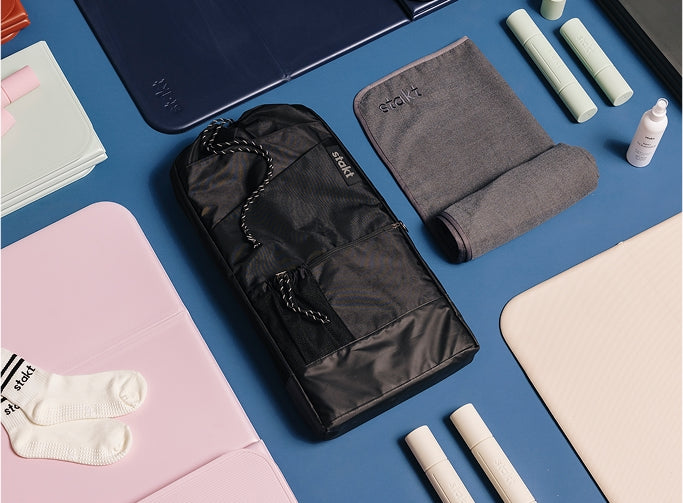Moving your body through exercise has a powerful impact on your physical health. But movement does much more than affect physical health, it also has a great impact on mental health. Exercise and other forms of movement have a wide variety of positive effects on mental health and wellness. Studies show that physical activity “is highly beneficial for improving symptoms of depression, anxiety and distress”. Let’s walk through the range of ways this can manifest!
Endorphins:
Physical activity can have a huge effect on our mood. Exercising makes a significant impact on many of the hormones in our body. It both can reduce certain stress hormones, such as cortisol, and also increase hormones associated with pleasure, such as endorphins. Endorphins are hormones that have the dual utility of being a painkiller and a stress reliever. Our bodies naturally begin to produce more endorphins, both when we are experiencing something painful (to get some relief from that pain) as well as when we are doing something pleasurable. One way we can actively impact our endorphin levels is through exercise. Known by some as the “runners high” (although this feeling can be achieved through all sorts of different forms of exercise), is when there is a spike in those endorphins during and after exercise that makes your mood feel elevated. An increase in endorphin level, along with a decrease in cortisol levels from exercising can aid in reducing symptoms of anxiety and depression.
Exposure:
Mental health can affect more than just your emotional wellbeing, it can also be physically impactful and manifest somatically. About 30% of people experience somatic symptoms connected to their depression or anxiety and people feel their emotions in their bodies in different ways. The way this manifests ranges, it could be that their heart starts racing, their muscles feel tense, their jaw is clenched, they get sweaty. So not only is it important to address our mental health emotionally, perhaps through talk therapy, but to also address our mental health physically and find some relief in that capacity as well. You might have noticed that some of the ways stress can manifest itself physically are also physical sensations that are usually found in someone exercising. Someone working out also may get sweaty, or have an increased heart rate. There have been studies done that show “exposing someone with high anxiety sensitivity to the physiological symptoms they fear, such as rapid heartbeat, in the context of physical exercise increases their tolerance for such symptoms.” Increasing your heart rate through exercise can desensitize you to the fear sometimes associated with an increased heart rate connected to anxiety. The DBT skill, TIPP also addresses how movement can be a way to release and feel emotions. “If you are feeling really wound up emotionally, or maybe really energetic, try engaging in some (short, but intense) exercise. Sometimes it feels like you’re so
filled with emotion you could just burst and it’s okay to occasionally lean into that. Instead of pushing that build up down, hug that part of you and let it escape by expressing it through physical energy exertion. Maybe do a few burpees, do jumping jacks for 60 seconds, run up and down the stairs of your building - it can be as simple as you need it to be!”
Sleep:
Exercise and movement can help you sleep better which can positively impact your mental health. As I wrote about in a blog for Be You Psychotherapy, exercising impacts our quality of sleep which impacts our mental health. As stated in the blog,“Physical activity during the day can pay dividends at the end of the day when you are going to sleep. Firstly, getting regular exercise during the day has an impact on our body’s production of melatonin: a hormone crucial to sleep regulation. More melatonin typically makes it easier to fall asleep faster and improves the quality of sleep. Additionally, people many times will have trouble falling asleep due to stress and physical activity can reduce stress levels. Hopefully moving your body throughout the day with some regularity will quiet some of those stressful thoughts that pop up when you’re trying to fall asleep. Lastly, research has shown that ‘adults who exercised for at least 30 minutes a day slept an average of 15 minutes longer than those who did not exercise’.”
Self Esteem:
Incorporating regular movement into your routine can increase your self esteem. Exercise can offer an outlet where you get to see improvements, or you get to experience that feeling of “crossing off something on your checklist”. Finishing a workout can allow you to feel a sense of accomplishment and also empower you to know that you can take some control over that feeling. You took an active role in improving your own mood and increasing your own self esteem. Not only that, you are taking time out of your day to do something for yourself. Things like setting aside time for self-care (through exercise or otherwise) sends signals that you are worth making an effort for and increases your self esteem.
Moving your body is one really wonderful way to have a positive impact on your mental health. Keep in mind that this idea of how movement can be impactful on your mental health is just a general one and that each individual has a unique experience of how exercise factors into their mental health. If you are curious about how this plays a role in your own wellness, talking about it with a professional psychotherapist may be helpful and bring some nuance to this important discussion around movement and mental health.
- Written by Jennie Kleinman, Be You Psychotherapy

ABOUT JENNIE:
Jennie Kleinman is a trauma-informed psychotherapist offering talk therapy at Be You Psychotherapy in NYC. Jennie supports people experiencing anxiety, navigating life transitions and those looking to explore patterns in their relationships and work on healthy boundaries. As a therapist she is motivational, open and attentive and will hold space for you through it all. She will make room for conflict and unhappiness and welcome adversity. Together you will create a space for growth and change. Jennie offers both in person and virtual therapy sessions and would love to discuss the best option for you! The process of therapy itself can be so meaningful, and it is so important that you can connect with your therapist and feel like you have a comfortable place to land each week. So call Jennie at (646) 598-4378 or email her at jennie@beyoupsychotherapy.com for a free 15 min consultation to see if you could be a good fit!





